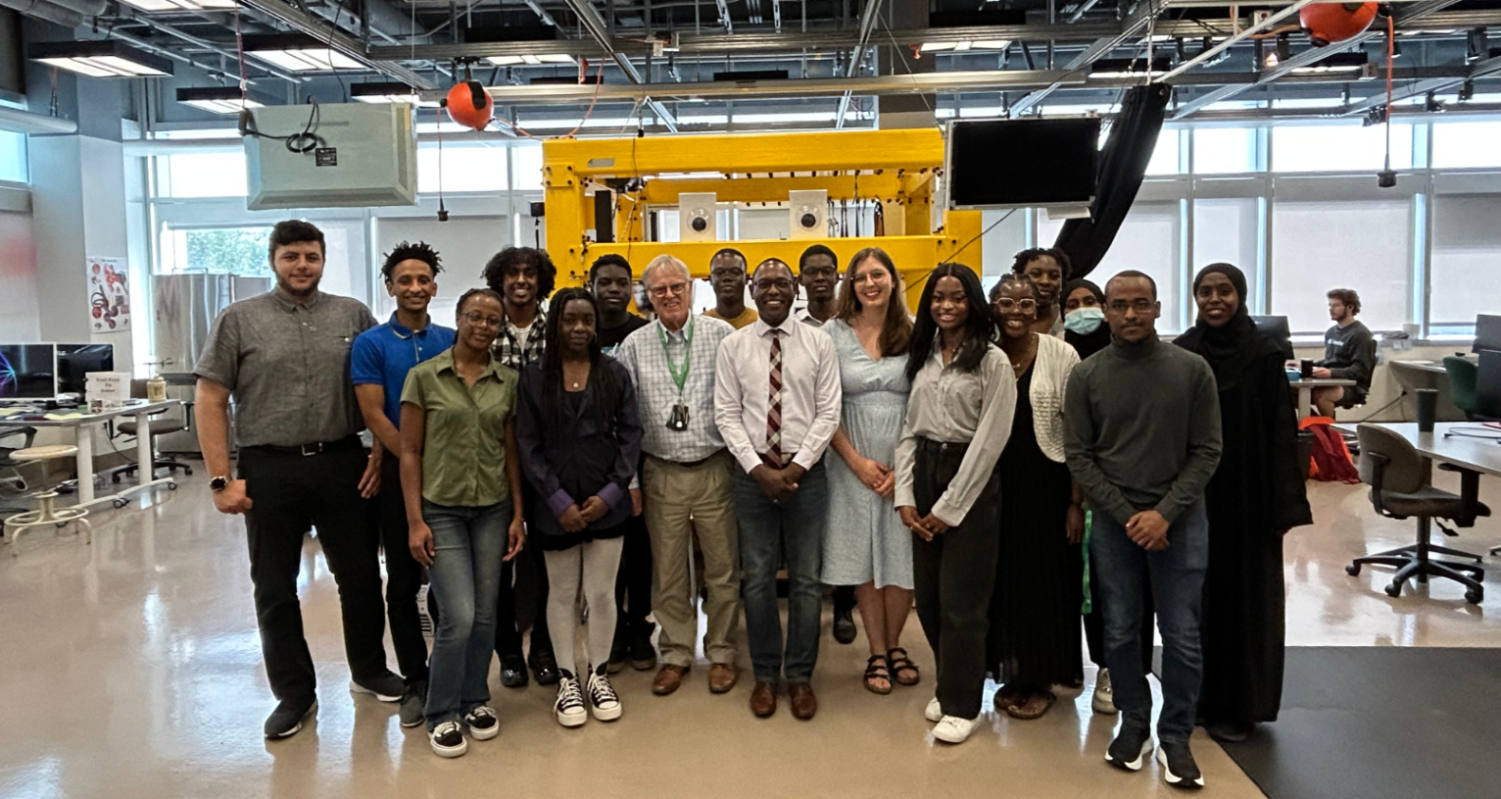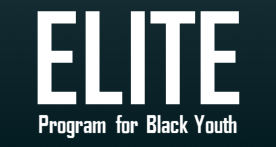Author: Adiki Puplampu
Date: 17 October 2023
Interview with an Internship Host: Emily Armstrong
As lab manager for the Rehabilitation Robotics Lab, Emily Armstrong is responsible for all the research projects under principal investigator, Dr. Martin Ferguson-Pell. From grant writing to hiring staff and managing lab administration, Emily is an integral part of the lab and a key mentor and contact for ELITE Program interns in the lab. In this interview, Emily talks about her experience working with ELITE Program interns and the significance of the Program to the work of the lab and the academic ecosystem more broadly.
Responses have been edited for brevity and clarity
Can you tell me a little bit about the Rehabilitation Robotics Lab (RRL)?
We’re part of the Faculty of Rehabilitation Medicine, our lab is in ECHA and it’s co-run by two principal investigators, Dr. Martin Ferguson-Pell and Dr. Greg Kawchuk. The mission of the lab is to just make a difference in the lives of people who need different levels of rehabilitation care. So that can be people who have sustained an injury, like a broken arm and need rehabilitation all the way to folks without the ability to walk.
A lot of the work we do here in the lab is about supporting people to get as much independence as they want to have the quality of life they’re looking for, to be able to do the activities that they care about and to be able to access that care in an equitable manner. So a lot of our focus is on diversity, equity and inclusion. We think that not only should we be doing work for diverse groups of people but that we should also be doing work with diverse groups of people. One of the taglines I like to use is - “The Robotics Lab is where anyone from anywhere with any interest in rehabilitation science can come and play.
How did the lab first get involved with the ELITE Program?
It was me that found it. Unfortunately, I missed the first year of the ELITE Program, but in the recruitment for the second summer, Dr. McDonald had put it in the employee digest or the Quad or something like that. I just saw a tiny little blurb about the “ELITE Program paid internship for Black youth,” and I just decided to put in a couple of postings. I believe for last year we put in four, and we got six placements for last year and the caliber and quality of the students blew us out of the water. I remember because I work most closely with Dr. Ferguson-Pell and we would give them a task that we thought would take them a week and an hour later they would come back. They just took us completely by surprise, in the best way possible, but we were so overwhelmed because we didn’t have enough work for them. What we ended up doing was increasing
the capacity or the scope of their projects because they got so much further than we were expecting which was really exciting. So it was really just good luck. I saw it, and put us in, and you guys liked it and then the students were amazing so we decided to come back again this year.
How many ELITE Program interns does the RRL have this year and what projects are they working on?
We have a total of 15 interns; 14 of them are with Dr. Ferguson-Pell and one is with Dr. Kawchuk. Dr. Ferguson-Pell has six university students and eight high school students interning at the lab and their projects are extremely varied. We have a bunch working on validation technology, exploration, and a few are running a couple pilot studies working in hearing and technology. One intern is supporting the work of one of our graduate students helping to integrate a bunch of different technologies she’s using for her project. He's helping her to lay out the protocol a little more robustly before she brings it into clinical practice. It’s a very wide variety of projects.
What has it been like coordinating and working with such a large cohort of students this year?
Chaotic. I mean it’s a big group of kids and they’re not the only interns we have but honestly there’s such a great mix of independent and like co-dependent. They go off on their own for a couple days and are able to just beaver away at it all. I think one of the even bigger benefits has been the camaraderie that they’re able to build for themselves. We have four returning interns from last year as part of our group and a number of older Black role models for them to learn from. The university age kids have folks who are a couple years older and the high school kids have the university age kids so they can build that support ladder for each other, not just relying on the leadership of the lab but also relying on the leadership of each other.
I think it’s also really special to have this cohort of people who have similar life experiences living in Canada. We have like maybe five or six who have French as a first language so they’re able to speak French and help each other find English words because it’s tough when you study science in a different language. Also, quite a few of the students are Muslim so they’re able to go do their afternoon prayers together while they’re in the lab. Having a larger group means that they have more community that would not have otherwise existed in the lab without the program which I think is really great.
How have ELITE Program interns contributed to the work and projects of the RRL over the years?
That’s a huge question and I can answer both specifically and broadly. Last year we had interns who had a poster accepted to a conference and presented at that conference, thanks to the support of the Program and the work they did in the lab. And that’s one of the main metrics that a research lab measures its success by, the number of presentations and publications. So from those base metrics that’s an immediate success. And from an interpersonal, touchy feely perspective, they enhance the work we do every single day because they have diverse perspectives.
We’re very fortunate in the lab to have a large number of international students who want to join our team, but a lot of them are coming here just for school. A lot of the folks that are immigrants, first generation Canadians, in the ELITE Program have been here for quite a number of years, but they still remember living in their home so they have that diverse cultural experience. And I really believe that the more diverse perspectives you can bring onto a cohesive team, the better the products you’re going to make.
Martin and I have so many ideas and zero time, you get these students for two months or four months and we’re able to say here’s one of our ideas: can you run with this as far as you can in four months. Some projects we’ve had on the back burner for two years and they’re doing work and moving it forward even if it just moves forward an inch. That’s an inch that we couldn’t have done because we just don’t have capacity. Having the students just increases our capacity to explore because they’re able to tackle things we don’t have time for.
What would you say to another research group thinking about becoming an internship host and submitting a project?
Literally, it will be the best thing. The caliber of the students, I cannot state enough how impressive they are. The criteria for acceptance into the program is incredibly high and we’ve just been given these flawless students on a silver platter. I didn’t have to do anything to get them except write an interesting research idea. I would say do it absolutely, but also invest in them in the same way they are allowed to invest in us.
I would love to be able to pay every student that comes in here for their very valuable time. We just don’t have the resources. So having a program like ELITE where the students are paid a relatively competitive wage, it’s above minimum wage, it’s great. You get a high caliber student, they get paid for their time, you don’t have to worry about that, but I would say to folks they have to be prepared to spend some time with them. Put something into them to really get something out of them as well. They’re like a little wind up toy, but you have to point them in the right direction before you just let them go.
From your perspective, what is the significance of the ELITE Program particularly within the context of research and academia?
There are less opportunities for non-white people [in academia]. The ELITE Program is for Black students, so it's creating space in a space that is inherently not offered any space to the Black community. It’s radical in and of itself just by existing. Academia used to be the old White boys club and it’s slowly not becoming the case. We have a lot of students who don’t always realize their potential, not just Black students. People in general don't always realize their potential or direction until they’re given an opportunity to explore them further.
So we give someone a job and their job is to come and learn about themselves. It’s an equalizer. It’s a great opportunity [for students] to explore their own interests and capabilities in a way that is very supportive. The ELITE Program itself, it’s a feeder. You give students this opportunity and it encourages more Black students to apply for university, encourages more Black students to get into research. Over time as we continue this cycle that should mean that we have more Black students in teaching and administration and leadership of universities, Canada-wide. And that is absolutely what we want, we want to have that proportional representation.


